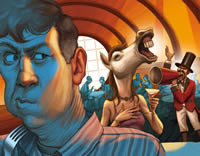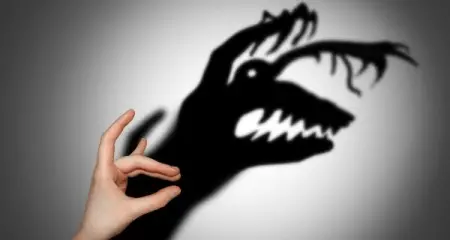
An overview of visual hallucinations: Patients who experience hallucinations secondary to a host of underlying conditions often will look to you for guidance, reassurance and treatment. FDA approves first drug to treat hallucinations and delusions associated with Parkinson’s disease. Visual hallucinations: differential diagnosis and treatment. Hypnagogic and hypnopompic hallucinations during amitriptyline treatment. What is the link between hallucinations, dreams, and hypnagogic-hypnopompic experiences?. In the twilight zone: An epidemiological study of sleep-related hallucinations. Neurologic manifestations of chronic methamphetamine abuse. Hallucinations: Clinical aspects and management.

A person with paranoid delusions, for example, may believe that someone is out to get them even when there is no evidence to support this belief.Chaudhury S. Delusions, on the other hand, are false beliefs that are firmly held even though there is evidence to the contrary. For example, if a person is having an auditory hallucination, they might hear voices that aren’t there. Hallucinations are sensory experiences that only the person experiencing them can see or hear. Conclusionĭelusions and hallucinations are both considered psychotic symptoms, but they are quite different. Delusions and hallucinations can both be symptoms of mental illness, but it is important to distinguish between the two in order to provide appropriate treatment. Hallucinations can occur in any of the five senses, and a person may not be aware that their perceptions are inaccurate. In contrast, a hallucination is a false perception that is not based on reality. Delusions and hallucinations are symptoms of psychosis that often stem from the same cause. There are multiple types of delusions and hallucinations that people may experience. A person with a delusion is usually aware that their belief is not shared by others, but they continue to hold on to it regardless. Hallucinations: What Are the Differences Types. Dementia Hallucinations and delusions can result from the basic chemical and physical changes that occur in the brain, regardless of other factors such as PD. A delusion is a false belief that is held despite evidence to the contrary. Difference between Delusion and Hallucinationĭelusion and hallucination are two terms that are often used interchangeably, but there is a distinct difference between the two. Hallucinations can be a sign of a serious condition, and should not be ignored. This can be due to many reasons such as lack of sleep etc. If you are experiencing hallucinations, it is important to seek medical help to rule out any underlying physical or mental health conditions. Hallucination vs Delusion The main difference between Hallucination and Delusion is that the former refers to a state belonging to a person in which the person sees or believes in things that do not exist in reality or exist in reality in a different manner. However, some people may continue to experience hallucinations even when there is no apparent trigger. In many cases, hallucinations resolve on their own after the underlying cause is addressed. Hallucinations can be induced by a variety of factors, including sleep deprivation, drug use, and mental illness. People who experience hallucinations may see things that are not there or hear voices that do not exist. Hallucinations can occur in any of the five senses but are most commonly associated with sight and hearing. What is Hallucination?Ī Hallucination is a perceptual disturbance that occurs in the absence of an external stimulus.
Difference between hallucination and delusion professional#
Treatment for delusions typically involves psychotherapy and medication, and it is important to seek professional help if you or someone you know is experiencing this symptom. Delusions can cause distress and impairment in social and occupational functioning, and they are common symptoms of mental illness.

Delusions can be both bizarre and non-bizarre, and they can involve any number of different topics, from paranoia to grandiose ideas. Delusions can be extremely difficult to change, as individuals often insist on the truth of their beliefs even when presented with facts that disprove them. Delusion is a persistent false belief that is held despite evidence to the contrary.


 0 kommentar(er)
0 kommentar(er)
